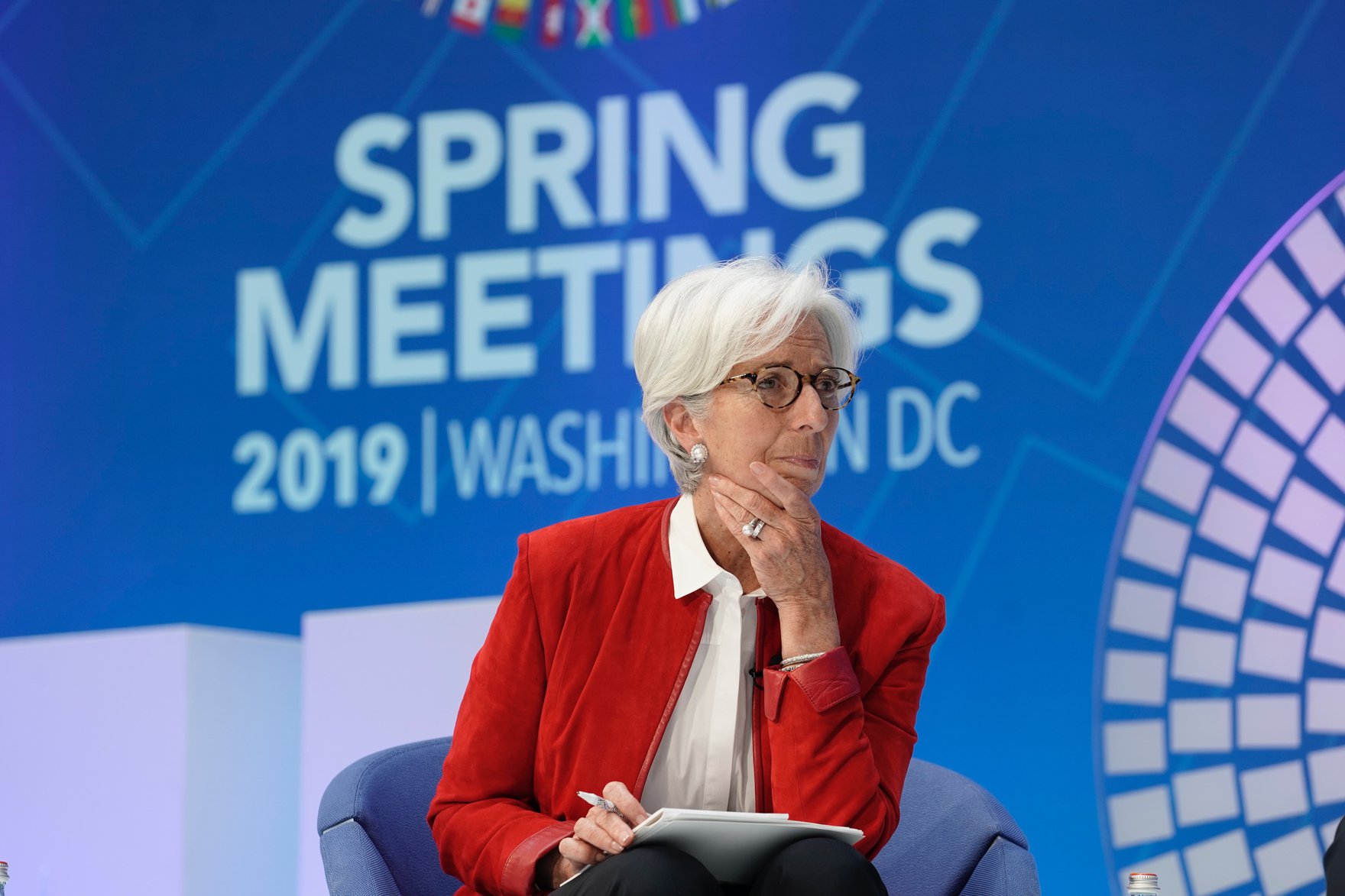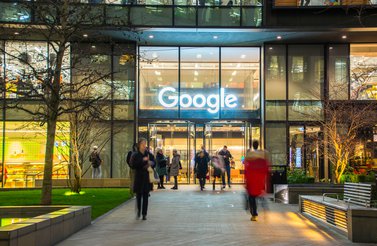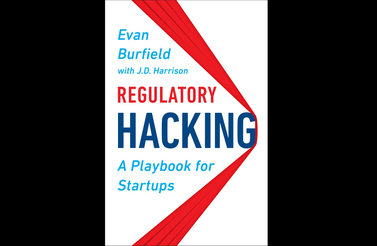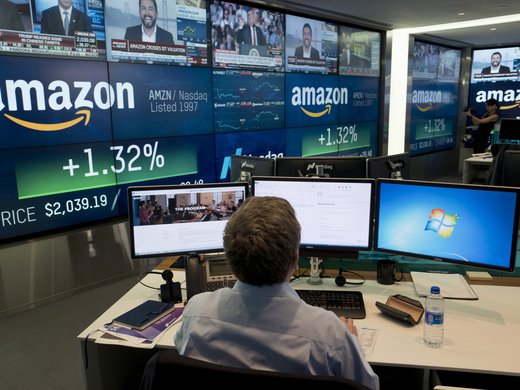In an April 2 speech at the US Chamber of Commerce, Christine Lagarde, chief of the International Monetary Fund (IMF), said that a “small number of highly dynamic companies” are accounting for the highest price markups in advanced economies around the world.
“There is a ‘winner takes most’ dynamic at play — especially pronounced in the digital economy,” Lagarde told corporate CEOs and other executives.
Lagarde likely surprised some executives in the audience who may not have been expecting an attack on big business at the Chamber of Commerce. She argued that a monopoly problem hasn’t developed — at least, not yet — but that policy makers should reduce barriers to entry for new firms, to ensure a level playing field emerges.
An IMF report issued in April to coincide with Lagarde’s comments raises the question of whether antitrust agencies should investigate and generally focus more attention on large incumbent firms that acquire smaller companies before they can become big rivals. The report noted that these kinds of acquisitions emerge “regularly” in the technology sector.
Federico Díez, an economist in the IMF’s research department, notes that when a large firm acquires a smaller company the merger will fly under the radar of antitrust authorities. However, it is possible — even likely, in some cases — that the smaller business could have grown to become a serious competitor of the larger firm, had it remained independent.
“If this were the case, then the acquisition would be preventing competition in the future, so maybe it would have been better for the acquisition not to take place from a competition standpoint,” Díez said. “Of course, the really hard part is to determine the counterfactual — what would have happened with the tiny firm had it not been acquired?”
The technology sector stands out as an industry whose largest players have been dismantling their competition through a raft of acquisitions in recent years. A Recode article published last year reports that Google, Apple, Facebook, Microsoft and Amazon acquired 309 companies among them between 2013 and 2018. Antitrust regulators didn’t block any of these deals.
Sally Hubbard, director of enforcement strategy at the Open Markets Institute, an advocacy organization focused on corporate concentration issues, argues that big tech companies routinely acquire smaller companies that they believe pose a competitive threat. She added that these firms routinely make acquisitions to fortify and extend their monopoly power.
Case in point: Facebook acquired Instagram in 2012 for $1 billion, a deal that Hubbard argues should have been blocked by the Federal Trade Commission. She also contends that the social media behemoth’s $19 billion purchase in 2014 of WhatsApp, a phone messaging and web service, also should have been rejected and should be unwound.
“Instagram is the closest rival to Facebook,” she said. “It was a top competitive threat to Facebook. WhatsApp is a direct competitor to Facebook Messenger. Whenever there is a critical mass of users communicating on one platform there’s a good chance it’s a competitive threat to Facebook.”
As far as price markups, Hubbard contends that in some ways Amazon can be compared to Walmart. Both corporations can leverage their size to drive down earnings at the companies producing the goods that they stock. In addition, Amazon sellers pay fees, which also diminish producer profits.
“Most [of the producers] who sell on Amazon and [in] Walmart are getting their margins compressed,” she said.
The IMF study did not specify which big companies have produced the largest price markups. However, Díez said that the top 10 percent of about one million firms reviewed in 27 countries accounted for most of the documented overall increase in price markups.
“This group includes not only the large high-tech firms you might suspect but also a large number of smaller firms from all broad economic sectors,” Díez said.
Even so, many private technology firms contemplating share issuances in recent years have started taking action themselves to ensure that they aren’t gobbled up by the biggest technology companies shortly after they enter the public market. Some technology “unicorns” (private startups valued at more than $1 billion) such as Pinterest and Lyft are setting up so-called dual-class share ownership structures, which give insiders and founders control of a majority of the vote.
The structure is intended, in part, to insulate founders and companies against hostile bids and activist hedge fund managers, who frequently push smaller technology companies into auctions and sales to their gargantuan rivals: Facebook, Amazon and Google. Lyft’s two co-founders, Logan Green and John Zimmer, for example, have majority control of the votes even though they own about seven percent of the shares. However, critics contend that such structures entrench boards and management, leading to a lack of accountability to shareholders.
Even so, David Berger, a partner at Wilson Sonsini Goodrich & Rosati in Palo Alto and a top advocate for dual-class stock companies, says that the ownership structure allows a company and its board to consider stakeholders in addition to stockholders. “If a company wants to grow independently and take a long time doing so it can,” he said.
Berger noted that a new theory of antitrust law, known by some as “hipster antitrust,” suggests that regulators shouldn’t focus exclusively on consumer welfare. Instead, the approach urges regulators to look at the size and impact that large corporations have on society, not just on how a proposed transaction would impact consumer prices. “The theory is that antitrust policy should go back to its origins and focus on size as well as consumer welfare,” he said.
Activist hedge funds often try to push smaller technology companies into selling themselves to their bigger rivals. In many cases insurgent fund managers will threaten or launch director-election battles with companies, with the goal of installing dissident directors onto corporate boards as a mechanism of achieving their deal-driving efforts. Berger notes that these activist firms typically have a close relationship with a handful of large institutional investors that control 50 percent or more of most public companies’ shares. The activists can acquire a small stake, such as 5 percent of the shares, and know that they can likely gain support for the activist’s merger and acquisition plans from those big shareholders. Companies without dual-class share structures are often pressured into auctioning themselves or making other changes, knowing that the activist will gain seats on the corporate board if they don’t take the desired action.
With or without activist hedge fund support, the largest tech companies will continue to make what they might call “tuck-in” acquisitions, which are approved by regulators. IMF’s Díez contends that policy makers should take other steps to help smaller firms compete with their bigger rivals. One thing regulators could do is to try and ensure that barriers to entry for new firms are low, with easier licensing requirements, for example. International competition can also help the situation, when foreign direct investment and trade liberalization occurs, allowing foreign firms to compete with domestic companies, he added.
“It is important for authorities to keep a watchful eye because even if the firms with market power got there mostly through innovation, it is still possible that going forward they may look to entrench their positions by erecting barriers to entry,” Díez said.





